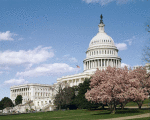The Role of Philanthropy in Democracy
This educator mini-course focuses on the relationship of the philanthropic nonprofit sector to democracy. Several key ideas underlying democracy are actualized in the nonprofit sector. We explore what schools teach about democratic citizenship, social contracts, and core democratic documents.
After completing this course (about 45 minutes), the learner is prompted to take a four-question quiz based on the content. Upon successful completion of this quiz, the learner may request a certificate suitable for a professional development portfolio, or as proof of .75 educational clock hours that can be used toward continuing education credit in most states. Please contact your State Department of Education or school district for specific information. Documentation of the completed courses and copies of the certificate are stored under "My Account" of the Learning to Give website where the learner may access (and print) them at any time.
The learner will
- describe a democratic citizen and how they relate to philanthropy.
- explain how government, business, and philanthropy are interrelated.
- relate philanthropy to democracy through social action, social contract, and enlightened self-interest.
- identify philanthropy themes in core documents of the U.S.
- recognize the role of nonprofits in protecting rights of minorities and holding government accountable.
It is part of most schools' mission statements to teach students to be good democratic citizens. We want all youth to graduate prepared to stay informed and contribute to society in meaningful ways. What does that mean exactly? Do we teach politics and encourage students to debate and protest? Or do we teach students to follow rules and get along? This section explores what is often taught in civic education and the role of service-learning and community service.
The fabric of society depends on the tension between government, business, and philanthropy. Each sector holds the others accountable and serves the needs of the citizenry in different ways. This section explores how philanthropy is part of the framework of democracy and shares the words of philanthropic scholars.
Alexis de Tocqueville was a French historian who wrote in 1831 about his visit to the U.S. to examine democracy. Among other things, he observed the unique focus on the common good that distinguished the culture of America. His famous quotes highlight how philanthropy is deeply embedded in the social contract of the U.S.
Social capital is a concept that arises in a free society and enhances democracy. Being part of a civil society means that people are willing to do things for one another for the good of all, often without expecting anything specific in return. This section explores how social capital and the social contract are inherent in democracy.
The core documents of the United States demonstrated the agreement of the people to limit some of their personal freedoms to ensure the benefits of self government under social contracts. They establish rules and agreements that have been upheld since the beginning days.
One major role of philanthropy and nonprofit organizations is to protect the rights of the minority by "mediating" the impact of government policies. The government cannot and will not address the needs of all its people. Individual and collective action is essential in protecting minority voices and limiting government. The nonprofit sector allows for voices to be heard that challenge the majority voice in a democratic society.
This quiz has four multiple-choice questions based on the mini-course "The Role of Philanthropy in Democracy." If you answer 75 percent correctly, you will have the opportunity to download a personalized certificate. You may revisit the course and retake the quiz, if desired.
